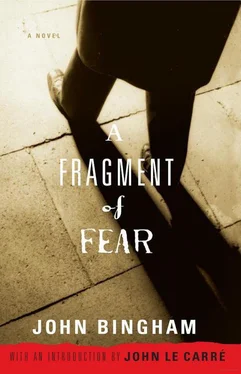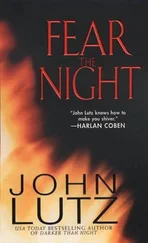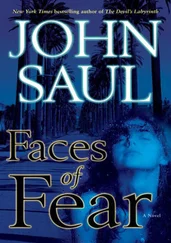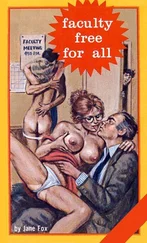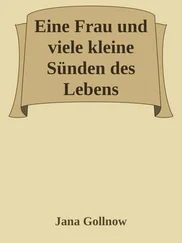John Bingham - A Fragment of Fear
Здесь есть возможность читать онлайн «John Bingham - A Fragment of Fear» весь текст электронной книги совершенно бесплатно (целиком полную версию без сокращений). В некоторых случаях можно слушать аудио, скачать через торрент в формате fb2 и присутствует краткое содержание. Жанр: Триллер, на английском языке. Описание произведения, (предисловие) а так же отзывы посетителей доступны на портале библиотеки ЛибКат.
- Название:A Fragment of Fear
- Автор:
- Жанр:
- Год:неизвестен
- ISBN:нет данных
- Рейтинг книги:3 / 5. Голосов: 1
-
Избранное:Добавить в избранное
- Отзывы:
-
Ваша оценка:
- 60
- 1
- 2
- 3
- 4
- 5
A Fragment of Fear: краткое содержание, описание и аннотация
Предлагаем к чтению аннотацию, описание, краткое содержание или предисловие (зависит от того, что написал сам автор книги «A Fragment of Fear»). Если вы не нашли необходимую информацию о книге — напишите в комментариях, мы постараемся отыскать её.
A Fragment of Fear — читать онлайн бесплатно полную книгу (весь текст) целиком
Ниже представлен текст книги, разбитый по страницам. Система сохранения места последней прочитанной страницы, позволяет с удобством читать онлайн бесплатно книгу «A Fragment of Fear», без необходимости каждый раз заново искать на чём Вы остановились. Поставьте закладку, и сможете в любой момент перейти на страницу, на которой закончили чтение.
Интервал:
Закладка:
It may be worth noting that the occupant had called at the station an hour or so earlier, with a complaint about two men whose actions he had considered menacing. A written statement was taken and is attached.
Mr. Compton appeared sober on both occasions.
When they had gone, I stood by the window gazing out into the night. The windows of the houses on the opposite side of the road were dark, and the street was deserted, and I knew that neither of those factors meant a thing. Somebody or something was there.
I wondered what would have happened if I had not dialled “999,” if I had risked it and gone into the flat. I still wonder. I drew the curtains. Now all they had to watch was the front door. I was deadly tired, and went to bed, and fell asleep in a short while. But previous to going to bed I minutely examined my typewriter and typing paper and envelopes. I had set them in a special way.
They had not been disturbed. That was quite certain.
At four-thirty in the morning the telephone rang by my bedside, and I thought I knew what to expect. But when I lifted the receiver nobody would speak to me.
After a while there was a click, and the dialling tone was renewed.
CHAPTER 6
The following morning I got up about eight-fifteen, as is my custom. I take about an hour and a half to have a bath, shave, dress, and eat a light breakfast. This is a long time, but during that period I read one morning paper in my bath, and another over breakfast. So that by about ten o’clock, I have, so to speak, cleared the deck, and absorbed as much of the day’s news as I wish, and am ready for work.
I was trying to write an article for a Sunday newspaper, but found it impossible to concentrate. One of the things which worried me was whether to tell Juliet of the previous evening’s incidents. In the end, I decided against it.
I felt that the crunch was still to come; that when it did I would need all the strength I could build up beforehand; that to tell all things to Juliet would involve keeping her courage up as well as my own. It was a cold-blooded assessment, and probably an incorrect one.
I met her for lunch for a drink and a smoked salmon sandwich. I thought she might feel a little embarrassed by the subject of her adoption, and that the best thing to do was to grab this whole subject by the throat at once. So immediately we met I gave a broad smile, and said:
“Fond as I am of your father and mother by adoption, I must admit that I never could imagine how they produced anybody as attractive as you, my darling, and I am absolutely delighted that they didn’t!”
I have perhaps given the impression that in those days she was all mystery and brooding thoughtfulness. Such was far from the case. Most of the time she was extremely vivacious, and laughed easily and today she looked radiant after a long night’s sleep. She appeared by now to think that my troubles were an amateurish and over-melodramatic attempt to prevent an investigation of Mrs. Dawson’s life and death, simply because some members of her family or friends might be embarrassed.
“I expect the whole thing will die down in time. I mean, once they see you are not going to be intimidated, darling, they’ll just stop all this nonsense,” she said.
I forebore to tell her that Mrs. Dawson had no family to speak of, and few friends.
I recalled the men on the pavement, the flashing torch in my flat, the telephone call when nobody spoke, and said yes, yes, yes, I was sure she was right.
We only had a short meeting because she had a hair appointment at two o’clock. It was a happy meeting. I look back on it now and savour it, and remember it with tenderness.
In the afternoon I went to the London Library and took out some books on early Roman history, because I was still tampering with the idea of setting a crime in the Sibylline Caves, silly though it sounds. Then I had a hair-cut in Trumpers, and went home and found my evening paper thrust into the letter box, and there was Bunface, a single-column picture, in the middle of a front-page story.
She stared out of the page at me just as she had stared at me on the train from Brighton, when she wasn’t dabbing at her eyes with the grubby handkerchief. The same round, uninteresting face, the same short cropped hair; all a little muzzy, all rather blurred, as snapshots are when they are enlarged beyond the capacity of the negative.
She had been strangled the previous evening in a narrow alley called Paradise Lane off Notting Hill Gate. Police were attempting to establish her identity. There were hints that she had been murdered by a mentally unbalanced person, though the headlines did not go so far as to invoke a “maniac killer.”
I let myself in, and went straight over and mixed myself a whisky and soda, and thought, well, she knows now, she knows now all right, whether there is a life after death, and whether she will see her friend again. She had been toying with the idea of suicide, whether seriously or not one could not say, but that wasn’t necessary, as it turned out, that wasn’t necessary at all. Somebody else had done the job for her.
In these cases it is a delicate newspaper habit to talk about “good-time girls” rather than prostitutes, but even the newspapers, having seen her photograph, hadn’t been able to justify the description of “good-time girl.” She was described as “an unknown middle-aged woman.” Police were anxious to talk to anybody who recognised her from the photograph. I wondered how the police had obtained the photograph, and assumed that they had found a snapshot in her handbag, perhaps a holiday snapshot of herself and her dead friend, and had enlarged it.
This then was the wretched, despairing old doll who had given me a letter containing veiled threats. This was the unhappy soul who had complained about me to the police. This was a woman who, I felt sure, was of such a weak and mediocre mentality that she had got caught up in machinations of which she knew little. Or did she? Either way, the result was the same for me, and now the result was the same for her. Knowing nothing of the stresses to which the jungle predators had subjected her, I cannot find it in my heart to say she should have stood firm.
Surprising as it may seem, it took me some minutes to appreciate how I was concerned. This is doubtless because a crime writer, though he may write of crimes, normally has had little personal involvement in such matters. In some ways he can be a proper little innocent.
When realisation dawned it came as a shock. This woman had laid a complaint against me, alleging that I had made improper suggestions to her in a train. Her photograph would indicate that such suggestions might have been very peculiar indeed, because she obviously had no pretensions at all to normal sex appeal. Her photograph would be recognised at the local police station, and her complaint on record.
She had been killed, it was hinted, by an unbalanced killer, not by a sex maniac, or by a berserk assassin lusting for blood, or by a robber, but by somebody who was peculiar in some unspecified way.
I was very anxious to get to the police station, before a police officer called on me. I kept telling myself that I was not nervous because I had nothing to be nervous about, but that it would look better if I came forward, as a volunteer with information, rather than if I sat back until I was approached.
I was waiting to cross Earls Court Road from Scarsdale Villas when a man’s voice said, “Excuse me, sir.” He only wanted to know the way to the Old Brompton Road. Yet the incident set my heart pounding, because I was so keen to report to the police station before the police called on me.
What exactly I was going to say about poor old Bunface, which I hadn’t said already the previous day to Sergeant Matthews, I did not know.
Читать дальшеИнтервал:
Закладка:
Похожие книги на «A Fragment of Fear»
Представляем Вашему вниманию похожие книги на «A Fragment of Fear» списком для выбора. Мы отобрали схожую по названию и смыслу литературу в надежде предоставить читателям больше вариантов отыскать новые, интересные, ещё непрочитанные произведения.
Обсуждение, отзывы о книге «A Fragment of Fear» и просто собственные мнения читателей. Оставьте ваши комментарии, напишите, что Вы думаете о произведении, его смысле или главных героях. Укажите что конкретно понравилось, а что нет, и почему Вы так считаете.
